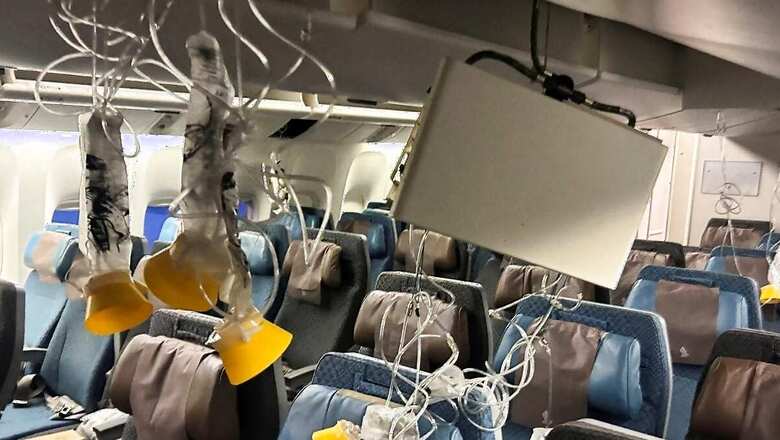
views
Singapore Airlines has sent offers of compensation to passengers on board a flight last month that encountered severe turbulence that led to dozens of injuries and one death, the carrier said on Tuesday.
Passengers with minor injuries have been offered $10,000 and those with serious injuries can discuss an offer to meet their specific needs, the airline said.
“Passengers medically assessed as having sustained serious injuries, requiring long-term medical care, and requesting financial assistance are offered an advance payment of $25,000 to address their immediate needs,” that will form part of any final settlement, it added.
A 73-year-old passenger died of a suspected heart attack and dozens were injured after flight SQ321 from London to Singapore encountered what the airline described as sudden, extreme turbulence while flying over Myanmar. It diverted and landed in Bangkok, Thailand.
Passengers said the crew and those not strapped in left the floor or their seats and slammed into the cabin ceiling, cracking it in places. A Bangkok hospital treating passengers said there were spinal cord, brain and skull injuries.
As of June 4, more than two weeks after the May 20 flight, 20 passengers were still receiving medical care in hospitals in Bangkok, according to the airline. It did not respond immediately to a request for an updated figure.
Singapore Airlines said it would refund airfares for all passengers on board the flight and they would receive delay compensation by regulations in the European Union or Britain.
A preliminary report by Singapore’s Transport Ministry said a rapid change in gravitational force and a 54-metre (177-foot) altitude drop likely caused passengers and crew to become airborne.
It said the plane was likely flying over an area of “developing convective activity”, a term referring to developing bad weather.
There were 211 passengers, including many Australians, British and Singaporeans, and 18 crew members on the flight.
The incident has put seatbelt practices in the spotlight, with airlines typically allowing passengers to undo belts during normal cruise conditions, while recommending they keep them on.



















Comments
0 comment